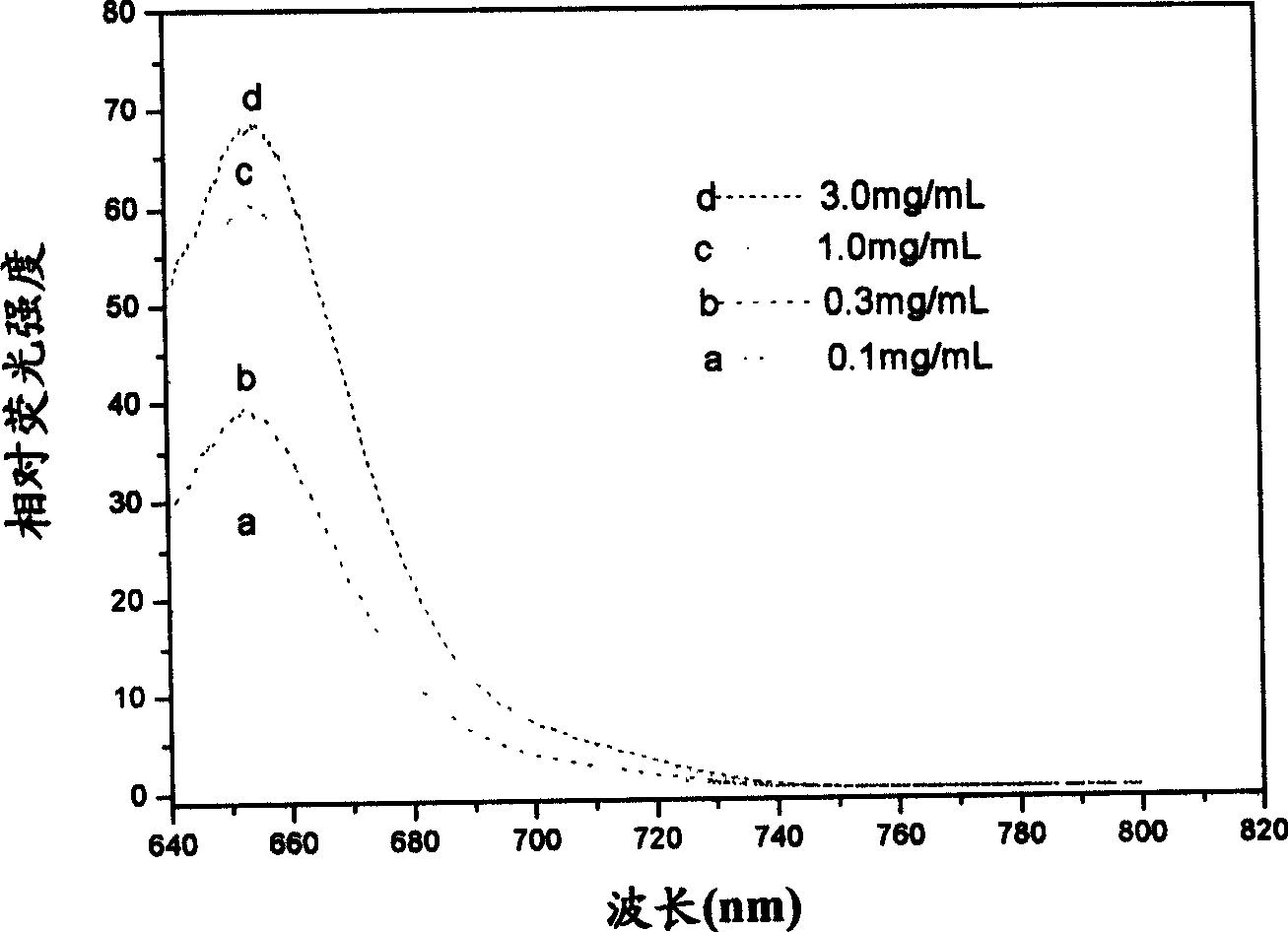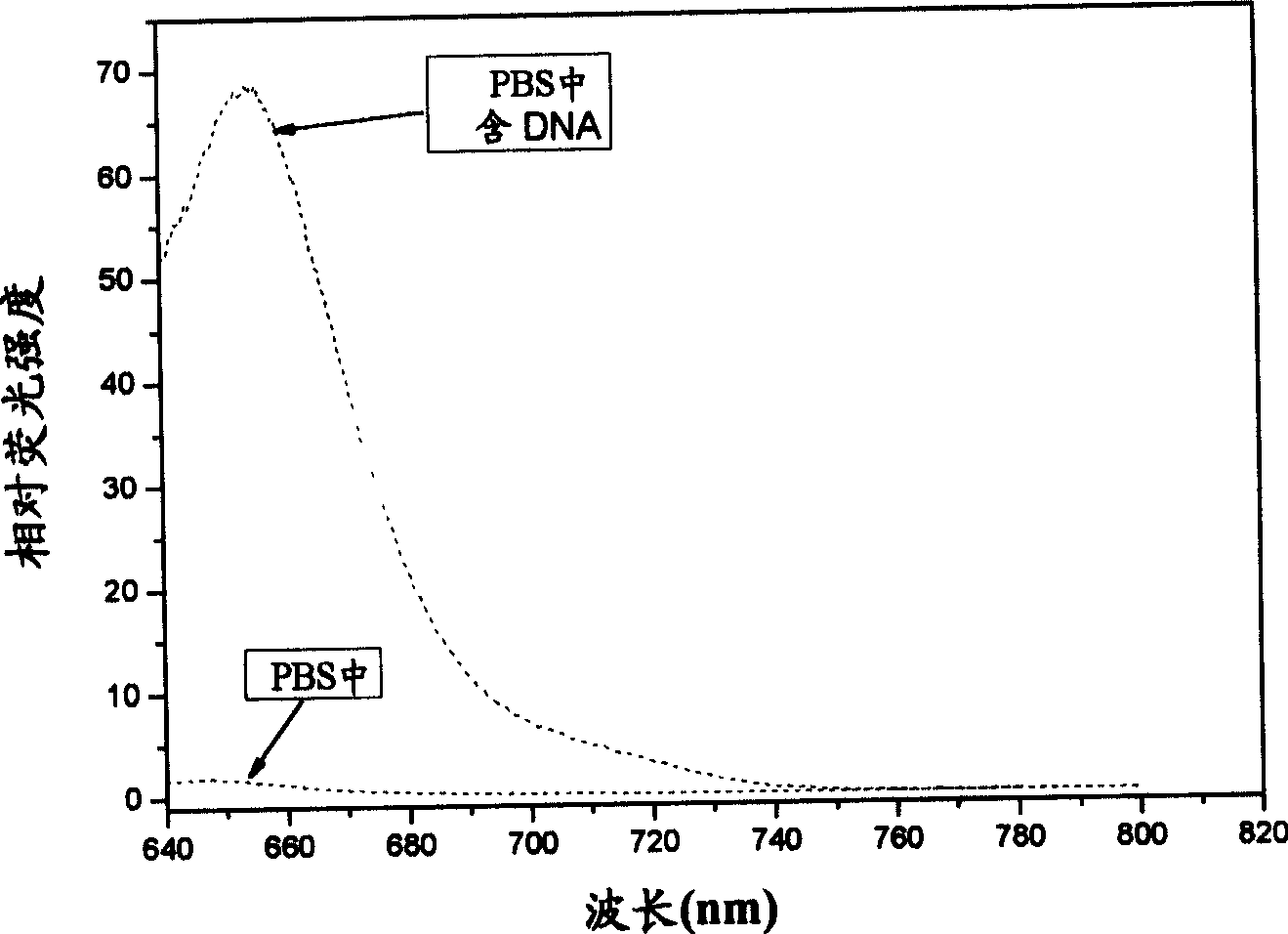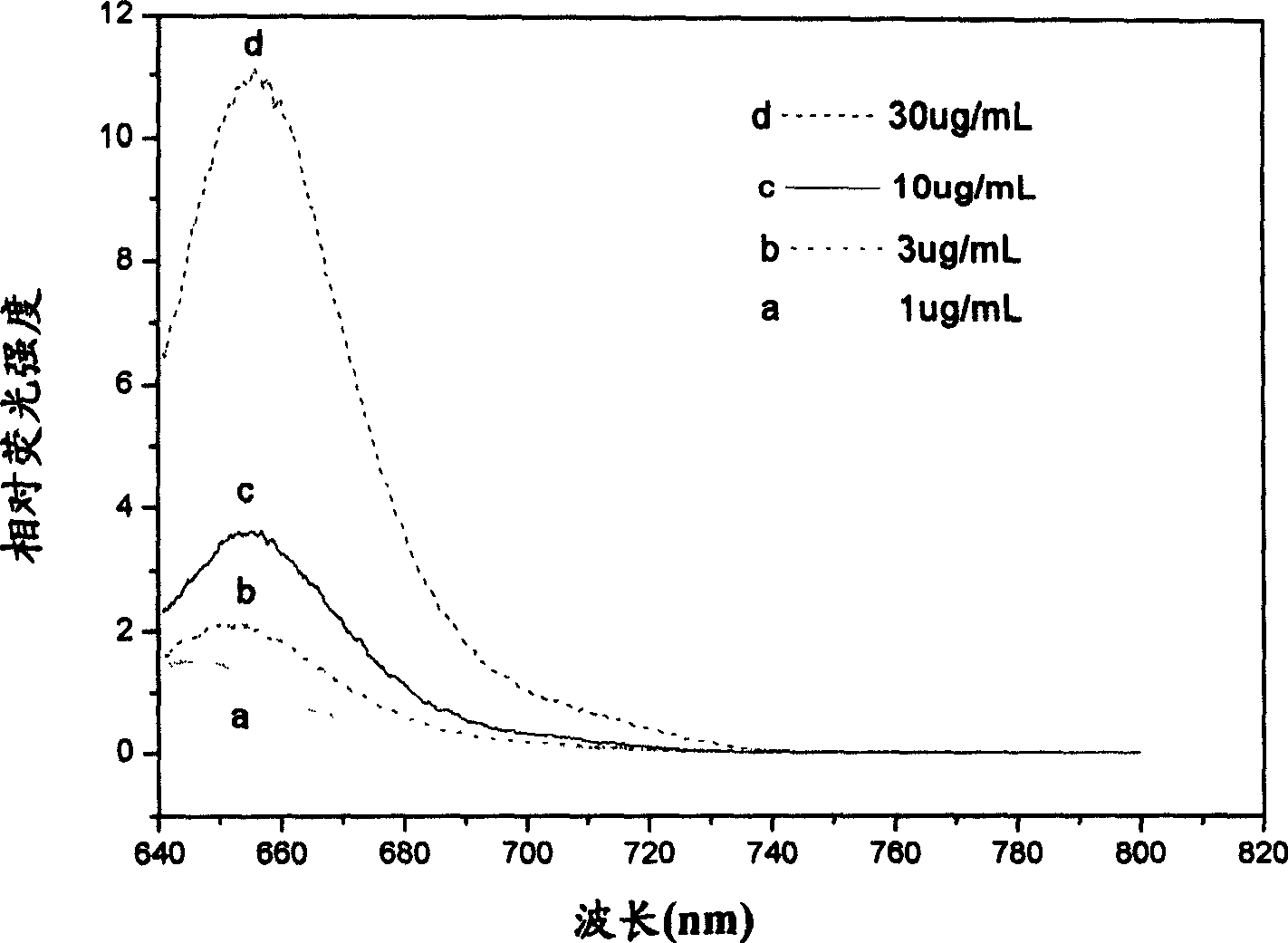Asymmetric cyanine fluorochrome composition and use in biological sample dyeing
A compound and alkyl technology, applied in the field of fluorescent dyes, can solve the problems of limited use range, long synthesis route, complex molecular structure, etc., to avoid fluorescence background interference and improve accuracy.
- Summary
- Abstract
- Description
- Claims
- Application Information
AI Technical Summary
Problems solved by technology
Method used
Image
Examples
preparation example Construction
[0064] The preparation method of the compound of the present invention
[0065] The compound of the present invention can be synthesized by general methods well known in the art, see for example the co-pending Chinese patent application CN200710137258.6 belonging to the present applicant. Said patent application is incorporated herein by reference. Specifically, the asymmetric cyanine fluorescent dye of the present invention is generally synthesized by the following process: firstly, by unsubstituted or substituted 2-methylbenzothiazole, 2-methylbenzoxazole or 2,3,3- Starting from raw materials such as trimethyl-3H-indoline, it can be compared with formula R 3 X (X is F, Cl, Br or I) halide reaction, the molar ratio of the two is 1:1-2, refluxed in toluene for 12-36 hours, the quaternary ammonium salt intermediate II can be obtained:
[0066]
[0067] where X, R 1 , R 3 and Y - as defined in the compound of formula I;
[0068] Then, the prepared quaternary ammonium sa...
Embodiment 1
[0090] Synthesis of Dye-1
[0091]
[0092] In a mixed solution of 40mL methanol and 20mL ethanol, put 10mmol 1-hexanoic acid ethyl-2-methylbenzothiazole bromide quaternary ammonium salt and 30mmol N, N'-diphenylformamidine on an oil bath at 65°C Heat and stir for 6 hours. After the reaction, the solvent was distilled off under reduced pressure, and then a certain amount of diethyl ether was added and stirred to precipitate an orange solid powder, which was filtered and dried. The crude product was recrystallized from ethyl acetate-hexane to obtain an orange-red solid product with a yield of 42%. Take 4.0 mmol of the reaction product, add 4.2 mmol of 1-benzyl-4-methylquinoline quaternary ammonium salt and 10 ml of pyridine, and heat and stir on an oil bath at 90° C. for 1.5 hours. After cooling to room temperature, the reaction solution was poured into ether, and a dark purple solid was precipitated, which was filtered and dried. The dye was separated through a silica ...
Embodiment 2
[0095] Synthesis of Dye-2
[0096]
[0097] In a mixed solution of 40mL methanol and 20mL ethanol, 10mmol 1-(2-hydroxyethyl)-2-methylbenzothiazole bromide quaternary ammonium salt and 30mmol N, N'-diphenylformamidine were dissolved in oil at 65°C Heat and stir on the bath for 6 hours. After the reaction, the solvent was distilled off under reduced pressure, and then a certain amount of diethyl ether was added and stirred to precipitate an orange solid powder, which was filtered and dried. The crude product was recrystallized from ethyl acetate-hexane to obtain an orange-red solid product with a yield of 41%. Take 4.0 mmol of the reaction product, add 4.5 mmol of 1-(ethylbutyrate)-4-methylquinoline quaternary ammonium salt and 10 ml of pyridine, and heat and stir on an oil bath at 90° C. for 1.5 hours. After cooling to room temperature, the reaction solution was poured into ether, and a purple-red solid was precipitated, which was filtered and dried. The dye was separat...
PUM
 Login to View More
Login to View More Abstract
Description
Claims
Application Information
 Login to View More
Login to View More - R&D
- Intellectual Property
- Life Sciences
- Materials
- Tech Scout
- Unparalleled Data Quality
- Higher Quality Content
- 60% Fewer Hallucinations
Browse by: Latest US Patents, China's latest patents, Technical Efficacy Thesaurus, Application Domain, Technology Topic, Popular Technical Reports.
© 2025 PatSnap. All rights reserved.Legal|Privacy policy|Modern Slavery Act Transparency Statement|Sitemap|About US| Contact US: help@patsnap.com



